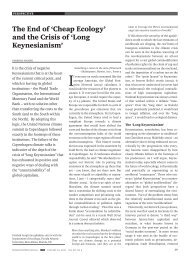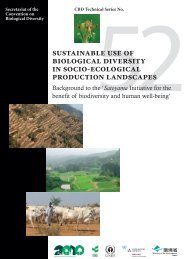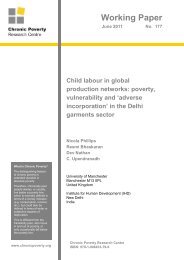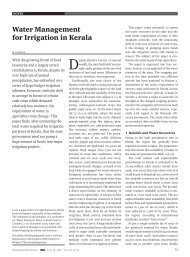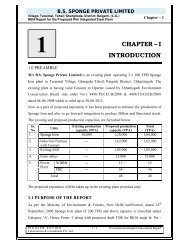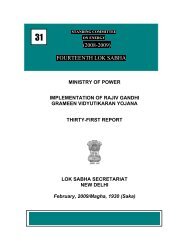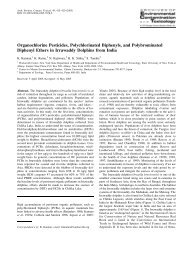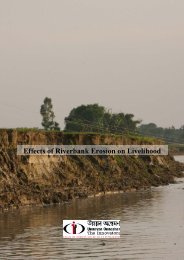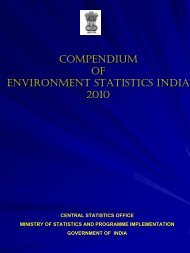- Page 1 and 2:
A-PDF Merger DEMO : Purchase from w
- Page 3 and 4:
A-PDF Merger DEMO : Purchase from w
- Page 5 and 6:
Section XIV : Plant Sciences 3 Plas
- Page 7 and 8:
Section XIV : Plant Sciences 5 Sout
- Page 9 and 10:
Section XIV : Plant Sciences 7 of m
- Page 11 and 12:
Section XIV : Plant Sciences 9 acut
- Page 13 and 14:
Section XIV : Plant Sciences 11 Onl
- Page 15 and 16:
Section XIV : Plant Sciences 13 by
- Page 17 and 18:
Section XIV : Plant Sciences 15 dif
- Page 19 and 20:
Section XIV : Plant Sciences 17 rec
- Page 21 and 22:
Section XIV : Plant Sciences 19 Cul
- Page 23 and 24:
Section XIV : Plant Sciences 21 iii
- Page 25 and 26:
Section XIV : Plant Sciences 23 in
- Page 27 and 28:
Section XIV : Plant Sciences 25 com
- Page 29 and 30:
Section XIV : Plant Sciences 27 8.
- Page 31 and 32:
Section XIV : Plant Sciences 29 40.
- Page 33 and 34:
Section XIV : Plant Sciences 31 72.
- Page 35 and 36:
Section XIV : Plant Sciences 33 103
- Page 37 and 38:
Section XIV : Plant Sciences 35 133
- Page 39 and 40:
A-PDF Merger DEMO : Purchase from w
- Page 41 and 42:
A-PDF Merger DEMO : Purchase from w
- Page 43 and 44:
2 Proc. 98th Indian Science Congres
- Page 45 and 46:
A-PDF Merger DEMO : Purchase from w
- Page 47 and 48:
2 Proc. 98th Indian Science Congres
- Page 49 and 50:
4 Proc. 98th Indian Science Congres
- Page 51 and 52:
6 Proc. 98th Indian Science Congres
- Page 53 and 54:
8 Proc. 98th Indian Science Congres
- Page 55 and 56:
10 Proc. 98th Indian Science Congre
- Page 57 and 58:
12 Proc. 98th Indian Science Congre
- Page 59 and 60:
14 Proc. 98th Indian Science Congre
- Page 61 and 62:
16 Proc. 98th Indian Science Congre
- Page 63 and 64:
18 Proc. 98th Indian Science Congre
- Page 65 and 66:
20 Proc. 98th Indian Science Congre
- Page 67 and 68:
22 Proc. 98th Indian Science Congre
- Page 69 and 70:
24 Proc. 98th Indian Science Congre
- Page 71 and 72:
26 Proc. 98th Indian Science Congre
- Page 73 and 74:
28 Proc. 98th Indian Science Congre
- Page 75 and 76:
30 Proc. 98th Indian Science Congre
- Page 77 and 78:
32 Proc. 98th Indian Science Congre
- Page 79 and 80:
34 Proc. 98th Indian Science Congre
- Page 81 and 82:
36 Proc. 98th Indian Science Congre
- Page 83 and 84:
38 Proc. 98th Indian Science Congre
- Page 85 and 86:
40 Proc. 98th Indian Science Congre
- Page 87 and 88:
42 Proc. 98th Indian Science Congre
- Page 89 and 90:
44 Proc. 98th Indian Science Congre
- Page 91 and 92:
46 Proc. 98th Indian Science Congre
- Page 93 and 94:
48 Proc. 98th Indian Science Congre
- Page 95 and 96:
98 th Indian Science Congress Janua
- Page 97 and 98:
2 Proc. 98th Indian Science Congres
- Page 99 and 100:
4 Proc. 98th Indian Science Congres
- Page 101 and 102:
6 Proc. 98th Indian Science Congres
- Page 103 and 104:
8 Proc. 98th Indian Science Congres
- Page 105 and 106:
10 Proc. 98th Indian Science Congre
- Page 107 and 108:
12 Proc. 98th Indian Science Congre
- Page 109 and 110:
14 Proc. 98th Indian Science Congre
- Page 111 and 112:
16 Proc. 98th Indian Science Congre
- Page 113 and 114:
18 Proc. 98th Indian Science Congre
- Page 115 and 116:
20 Proc. 98th Indian Science Congre
- Page 117 and 118:
22 Proc. 98th Indian Science Congre
- Page 119 and 120:
24 Proc. 98th Indian Science Congre
- Page 121 and 122:
26 Proc. 98th Indian Science Congre
- Page 123 and 124:
28 Proc. 98th Indian Science Congre
- Page 125 and 126:
30 Proc. 98th Indian Science Congre
- Page 127 and 128:
32 Proc. 98th Indian Science Congre
- Page 129 and 130:
34 Proc. 98th Indian Science Congre
- Page 131 and 132:
36 Proc. 98th Indian Science Congre
- Page 133 and 134:
38 Proc. 98th Indian Science Congre
- Page 135 and 136:
40 Proc. 98th Indian Science Congre
- Page 137 and 138:
42 Proc. 98th Indian Science Congre
- Page 139 and 140:
44 Proc. 98th Indian Science Congre
- Page 141 and 142:
46 Proc. 98th Indian Science Congre
- Page 143 and 144:
48 Proc. 98th Indian Science Congre
- Page 145 and 146:
50 Proc. 98th Indian Science Congre
- Page 147 and 148:
52 Proc. 98th Indian Science Congre
- Page 149 and 150:
54 Proc. 98th Indian Science Congre
- Page 151 and 152:
56 Proc. 98th Indian Science Congre
- Page 153 and 154:
58 Proc. 98th Indian Science Congre
- Page 155 and 156:
60 Proc. 98th Indian Science Congre
- Page 157 and 158:
62 Proc. 98th Indian Science Congre
- Page 159 and 160:
64 Proc. 98th Indian Science Congre
- Page 161 and 162:
66 Proc. 98th Indian Science Congre
- Page 163 and 164:
68 Proc. 98th Indian Science Congre
- Page 165 and 166:
70 Proc. 98th Indian Science Congre
- Page 167 and 168:
72 Proc. 98th Indian Science Congre
- Page 169 and 170:
74 Proc. 98th Indian Science Congre
- Page 171 and 172:
76 Proc. 98th Indian Science Congre
- Page 173 and 174:
78 Proc. 98th Indian Science Congre
- Page 175 and 176:
80 Proc. 98th Indian Science Congre
- Page 177 and 178:
82 Proc. 98th Indian Science Congre
- Page 179 and 180:
84 Proc. 98th Indian Science Congre
- Page 181 and 182:
86 Proc. 98th Indian Science Congre
- Page 183 and 184:
88 Proc. 98th Indian Science Congre
- Page 185 and 186:
90 Proc. 98th Indian Science Congre
- Page 187 and 188:
92 Proc. 98th Indian Science Congre
- Page 189 and 190:
94 Proc. 98th Indian Science Congre
- Page 191 and 192:
96 Proc. 98th Indian Science Congre
- Page 193 and 194:
98 Proc. 98th Indian Science Congre
- Page 195 and 196:
100 Proc. 98th Indian Science Congr
- Page 197 and 198:
102 Proc. 98th Indian Science Congr
- Page 199 and 200:
104 Proc. 98th Indian Science Congr
- Page 201 and 202:
106 Proc. 98th Indian Science Congr
- Page 203 and 204:
108 Proc. 98th Indian Science Congr
- Page 205 and 206:
110 Proc. 98th Indian Science Congr
- Page 207 and 208:
112 Proc. 98th Indian Science Congr
- Page 209 and 210: 114 Proc. 98th Indian Science Congr
- Page 211 and 212: 116 Proc. 98th Indian Science Congr
- Page 213 and 214: 118 Proc. 98th Indian Science Congr
- Page 215 and 216: 120 Proc. 98th Indian Science Congr
- Page 217 and 218: 122 Proc. 98th Indian Science Congr
- Page 219 and 220: 124 Proc. 98th Indian Science Congr
- Page 221 and 222: 126 Proc. 98th Indian Science Congr
- Page 223 and 224: 128 Proc. 98th Indian Science Congr
- Page 225 and 226: 130 Proc. 98th Indian Science Congr
- Page 227 and 228: 132 Proc. 98th Indian Science Congr
- Page 229 and 230: 134 Proc. 98th Indian Science Congr
- Page 231 and 232: 136 Proc. 98th Indian Science Congr
- Page 233 and 234: 138 Proc. 98th Indian Science Congr
- Page 235 and 236: 140 Proc. 98th Indian Science Congr
- Page 237 and 238: 142 Proc. 98th Indian Science Congr
- Page 239 and 240: 144 Proc. 98th Indian Science Congr
- Page 241 and 242: 146 Proc. 98th Indian Science Congr
- Page 243 and 244: 148 Proc. 98th Indian Science Congr
- Page 245 and 246: 150 Proc. 98th Indian Science Congr
- Page 247 and 248: 152 Proc. 98th Indian Science Congr
- Page 249 and 250: 154 Proc. 98th Indian Science Congr
- Page 251 and 252: 156 Proc. 98th Indian Science Congr
- Page 253 and 254: 158 Proc. 98th Indian Science Congr
- Page 255 and 256: 160 Proc. 98th Indian Science Congr
- Page 257 and 258: 162 Proc. 98th Indian Science Congr
- Page 259: 164 Proc. 98th Indian Science Congr
- Page 263 and 264: 168 Proc. 98th Indian Science Congr
- Page 265 and 266: 170 Proc. 98th Indian Science Congr
- Page 267 and 268: 172 Proc. 98th Indian Science Congr
- Page 269 and 270: 174 Proc. 98th Indian Science Congr
- Page 271 and 272: A-PDF Merger DEMO : Purchase from w



